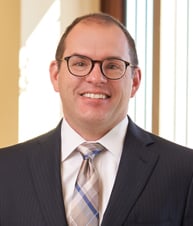K-fee System GmbH v. Nespresso USA, Inc., No. 2022-2042 (Fed. Cir. (C.D. Cal.) Dec. 26, 2023). Opinion by Taranto, joined by Clevenger and Stoll.
K-fee owns multiple patents that describe and claim coffee-machine portion capsules. The capsules display information that, when read by a device associated with the coffee machine, can prevent the capsules from being used in incompatible machines. The patents implement this feature by encoding the information in a “barcode.”
K-fee sued Nespresso for infringement. During claim construction, the parties agreed that the term “barcode” should be given its plain and ordinary meaning, but disputed what that meaning is. The dispute centered on statements made by K-fee before the European Patent Office (EPO) in connection with a challenge to the validity of K-fee’s related European patent. According to the district court, K-fee distinguished prior art by arguing that the plain and ordinary meaning of “barcode” excluded “bit codes.” Thus, relying on the EPO prosecution records, the district court found that the plain and ordinary meaning of “barcode” does not include bit codes. Applying that construction, the district court ruled that Nespresso’s products do not infringe. K-fee appealed.
The Federal Circuit reversed. First, the court disagreed with the district court that the ordinary meaning of “barcode” excludes bit codes. According to the Federal Circuit, K-fee’s remarks during the EPO prosecution “suggest that K-fee understood the relationship between barcodes and bit codes to be more complex than simply that bit codes cannot be barcodes.” K-fee’s remarks included noting that “a barcode can be, but is not necessarily, a bit code.” Thus, the Federal Circuit held that “the full scope of the ordinary meaning of ‘barcode’ should apply.”
The Federal Circuit next considered the question of surrender by K-fee during the EPO prosecution. The court concluded that “K-fee did not act with the clarity required either to prescribe a new meaning for ‘barcode’ or to disclaim any portion of the apparent meaning.” The court disagreed with Nespresso that K-fee’s statements to the EPO were “unequivocal” or “unambiguous,” ruling that “they were not clear enough to support disclaimer.” “If anything,” the Federal Circuit explained, the statements K-fee made about bit codes “were decidedly ambiguous.” The Federal Circuit thus reversed the claim construction, provided the correct construction, and remanded for analysis under that construction.
Patent Case Summaries
January 3, 2024
Patent Case Summaries | Week Ending December 29, 2023
Related News & Insights
-
Patent Case Summaries July 17, 2024Patent Case Summaries | Week Ending July 12, 2024A weekly summary of the precedential patent-related opinions issued by the Court of Appeals for the Federal Circuit and the opinions designated precedential or informative by the Patent Trial and Appeal Board.
-
Patent Case Summaries November 8, 2023Patent Case Summaries | Week Ending November 3, 2023A weekly summary of the precedential patent-related opinions issued by the Court of Appeals for the Federal Circuit and the opinions designated precedential or informative by the Patent Trial and Appeal Board.
-
Patent Case Summaries March 18, 2020Patent Case Summaries | Week Ending March 13, 2020A weekly summary of the precedential patent-related opinions issued by the Court of Appeals for the Federal Circuit and the opinions designated precedential or informative by the Patent Trial and Appeal Board.
-
Patent Case Summaries March 12, 2025Patent Case Summaries | Week Ending March 7, 2025A weekly summary of the precedential patent-related opinions issued by the Court of Appeals for the Federal Circuit and the opinions designated precedential or informative by the Patent Trial and Appeal Board.
-
Patent Case Summaries February 19, 2025Patent Case Summaries | Week Ending February 14, 2025A weekly summary of the precedential patent-related opinions issued by the Court of Appeals for the Federal Circuit and the opinions designated precedential or informative by the Patent Trial and Appeal Board.
Media Contact
